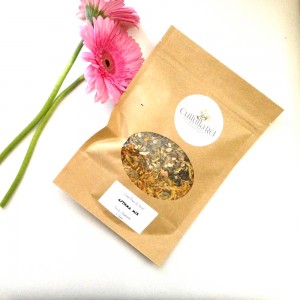Cystitis is an infection of the bladder that almost always follows (is secondary to) bacterial infection in the urine. It is the most common type of urinary tract infection (UTI), particularly in women.
The bladder is a muscular bag that stores urine from the kidneys. Urine leaves the body through a tube called the urethra. Cystitis occurs when bacteria travel up the urethra, infect the urine and inflame the bladder lining. Most women will experience cystitis at least once in their lives. While it is painful and annoying, it isn’t dangerous or contagious, and the infection can’t be passed on to your partner during sex.
If left untreated, the infection can ‘backtrack’ deeper into the urinary system from the bladder and reach the kidneys. A kidney infection is serious and needs prompt medical attention as it can cause kidney damage or even kidney failure.
Cause of cystitis
The most common bug or bacteria causing urinary tract infection is Escherichia coli (E. coli). The bacterium is often found when the urine is examined under a microscope – this test is called a microscopy and culture (M&C) of urine.
E. coli is commonly found in the digestive tract and bowel. Under normal conditions, it is harmless. However, E. coli thrives in the acidic environment of the bladder, where it multiplies and inflames the bladder lining.
Cystitis in women
Women in their late teens and older are most susceptible to cystitis, especially if they are sexually active. The female urethra is only 4 cm long, which gives bacteria easy access to the bladder.
And female sex hormones influence the vaginal secretions that affect the ability of bacteria to survive. This makes a woman more susceptible to infection:
- during certain stages of the menstrual cycle
- during pregnancy
- during menopause
- after a total hysterectomy.
Cystitis in men and older people
Men tend to get cystitis later in life. Where trouble with urine flow is a symptom, this may indicate that the underlying cause is a problem with their prostate gland.
Cystitis is common in older people, particularly if they are unwell. Bladder catheters and some urinary-tract operations may also increase the risk of cystitis.
Long-term prevention of cystitis
In some women, one bout of cystitis allows their urinary system to build up a type of immunity and further bouts are rare. For other women, cystitis can occur regularly.
Although not always backed up by research, some women have found that useful suggestions include:
- Go to the toilet to pass urine as soon as you feel the urge, rather than holding on.
- Drink plenty of water every day to flush your urinary system.
- Wipe yourself from front to back (urethra to anus) after going to the toilet.
- Wash your genitals before sex and encourage your partner to do the same.
- Urinate after sex.
- Wear cotton rather than nylon underwear.
- Avoid wearing nylon pantyhose, tight pants or tight jeans.
- Don’t use perfumed soaps, talcum powder or any type of deodorant around your genitals.
- Avoid bubble baths.
- Treat vaginal infections such as thrush or trichomoniasis promptly, since these organisms can encourage cystitis.
Ingredients:
- organic crataeva bark
- buchu leaf
- uva ursi
- organic celery seeds
- organic thyme
- cornsilk
- organic couch grass
- organic yarrow
- organic marshmallow leaf
- organic echinacea
- organic bearberry root
- organic calendula
- Clivers
- Organic Roobios
- Cats claw
- Birch leaf
- Thuja




Reviews
There are no reviews yet.